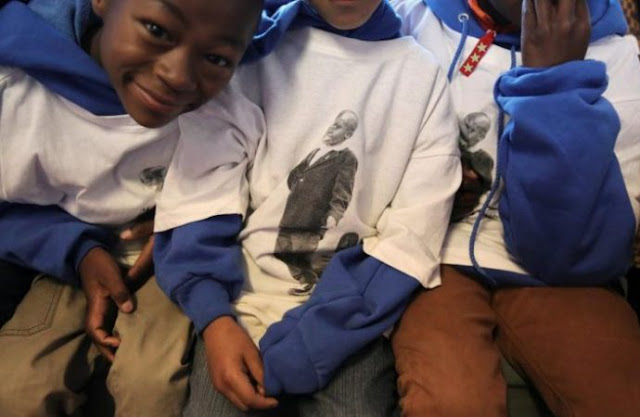Connect all your favorite blogs and website in one app. Get latest post on the go
Download on Playstore Here
Call +2347039732276 for Any Promotion on Blog Mall Nigeria.
The South Africa that hosts a global AIDS Conference next week has come a long way from the “AIDS pariah” that did so 16 years ago, when then President Thabo Mbeki stunningly dismissed the link between HIV and the disease.
At the epicentre of the worldwide AIDS pandemic, South Africa now boasts the largest treatment programme in the world, with 3.4 million people receiving the antiretroviral (ARV) drugs that allow those living with HIV to lead normal lives.
The contrast with the Mbeki era, when the health minister touted beetroot and the African potato as AIDS remedies and hundreds of delegates walked out of the conference when the president suggested poverty might be the leading cause of AIDS, could hardly be sharper.
During his presidency, Mbeki embraced a fringe movement of HIV deniers and resisted international and domestic pressure to seriously address the AIDS crisis. Instead, he denounced ARVs as Western inventions with poisonous side effects.
“The patients were dying like flies. We were treating them with tender loving care and vitamins. We had nothing,” said Dr. Jean Bassett, who founded the HIV treatment centre at the Witkoppen Clinic in Johannesburg in 1996.
Patience Ndlovu was one of those who received treatment at the clinic. Diagnosed with HIV in 2002, she received only vitamins as treatment at first.
“They were difficult times. To raise a child and me being in that status, I was so scared,” Ndlovu, now 38, said.
Ndlovu said that, at her lowest point, her CD4 count – a measure of how well the immune system is working – had dropped below 200, meaning her condition had progressed to AIDS.
She began receiving ARVs in 2004 after the Mbeki government began a reluctant roll-out of the life-saving drugs to the sickest AIDS patients following a 2003 court ruling. She recovered.
NEEDLESS DEATHS
Many South Africans living with HIV were not so lucky. A 2008 Harvard University study estimated that Mbeki’s obstruction resulted in at least 330,000 unnecessary deaths in the first half of the decade.
“It was a lost decade. We blew the years 2000 to 2008 with political obfuscation,” said Mark Heywood, cofounder of the Treatment Action Campaign, an advocacy group that for many years was the leading public voice on HIV in South Africa.
Major change did not come until new leadership was in place. Mbeki was ousted in 2008, and the following year Aaron Motsoaledi, a respected doctor, was appointed health minister by new South African president Jacob Zuma.
Motsoaledi immediately refocused the government response to the pandemic, launching a nationwide testing campaign and expanding ARV treatment.
“Motsoaledi has done a remarkable job,” said Dr. Chris Beyrer, president of the International AIDS Society, the organiser of the conference in Durban from July 18 to 22.
“For South Africa to have over three million on antiviral therapy – that is just extraordinary.”
Today seven million South Africans, 19 percent of the adult population, live with HIV.
The epidemic robbed many families of breadwinners, created an army of orphans and struck down millions in the prime of their working lives. While great progress in providing treatment has been made, the social and economic costs of the delayed response are still being felt.
“Mbeki was responsible for a huge number of people dying,” said Dr. Francois Venter, Deputy Executive Director of the Reproductive Health and HIV Institute at Johannesburg’s University of the Witwatersrand.
“He has a large amount of accounting to do for a huge number of people who are dead and families who are decimated and an economy that could be much stronger,” he said.
Mbeki remains unfazed by such attacks. In a letter posted on his foundation’s website in March of this year, he pushed back against critics of his record on HIV, repeating his assertion that a “virus cannot cause a syndrome.”
For those like Ndlovu, the shift in South Africa’s response to the HIV epidemic has saved and changed lives.
“It is a normal life. You’ve got this disease, but you’re still alive. As long as you take your treatment and follow what your doctors are telling you, everything will be OK,” she said.

















0 comments:
Disclaimer: Although every comment is appreciated, Opinions expressed in comments are those of the comment writers alone and does not reflect or represent the views of Blog Mall Nigeria. Keep in mind that comments are moderated and may take some time to appear. All spam comments will be deleted. Thanks for understanding!
FOR Adverts or Articles email BMNADVERTS@GMAIL.COM, BLOGMNIG@GMAIL.COM OR CALL 07039732276